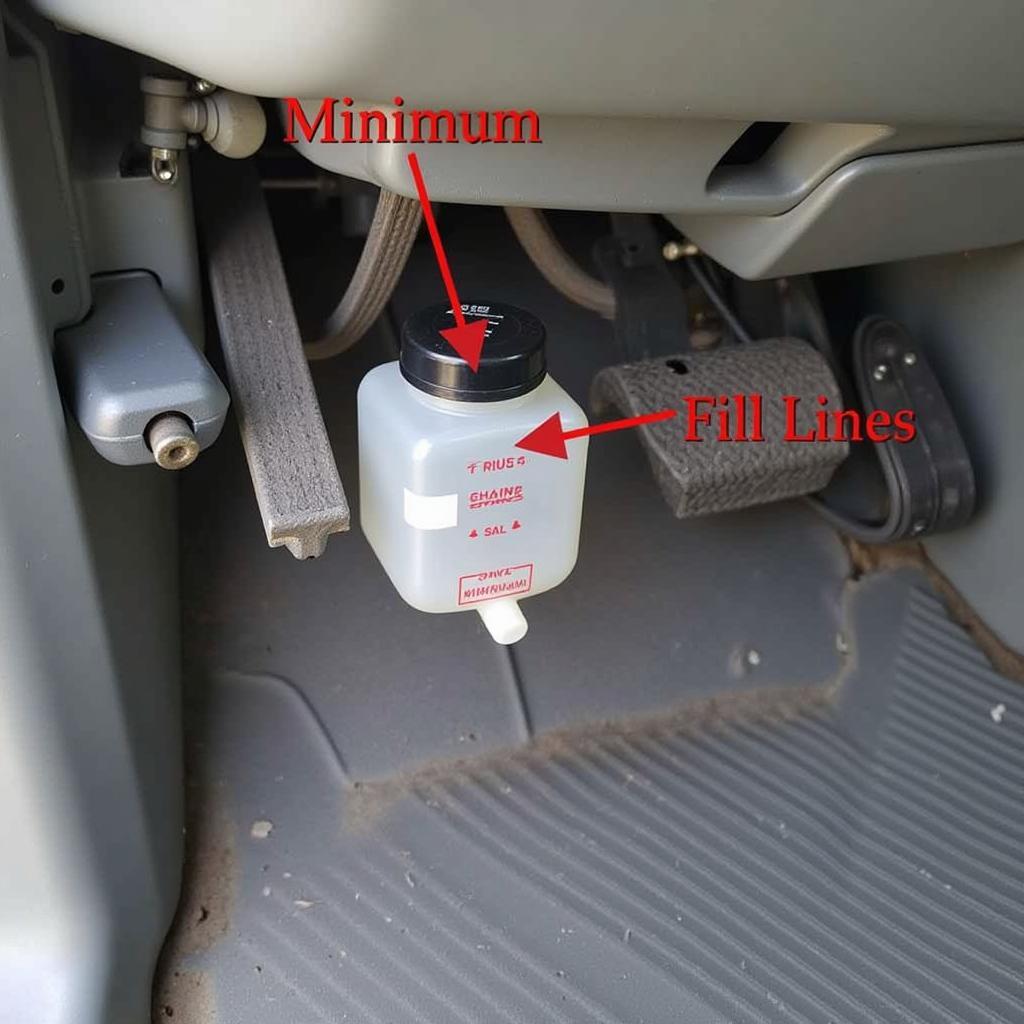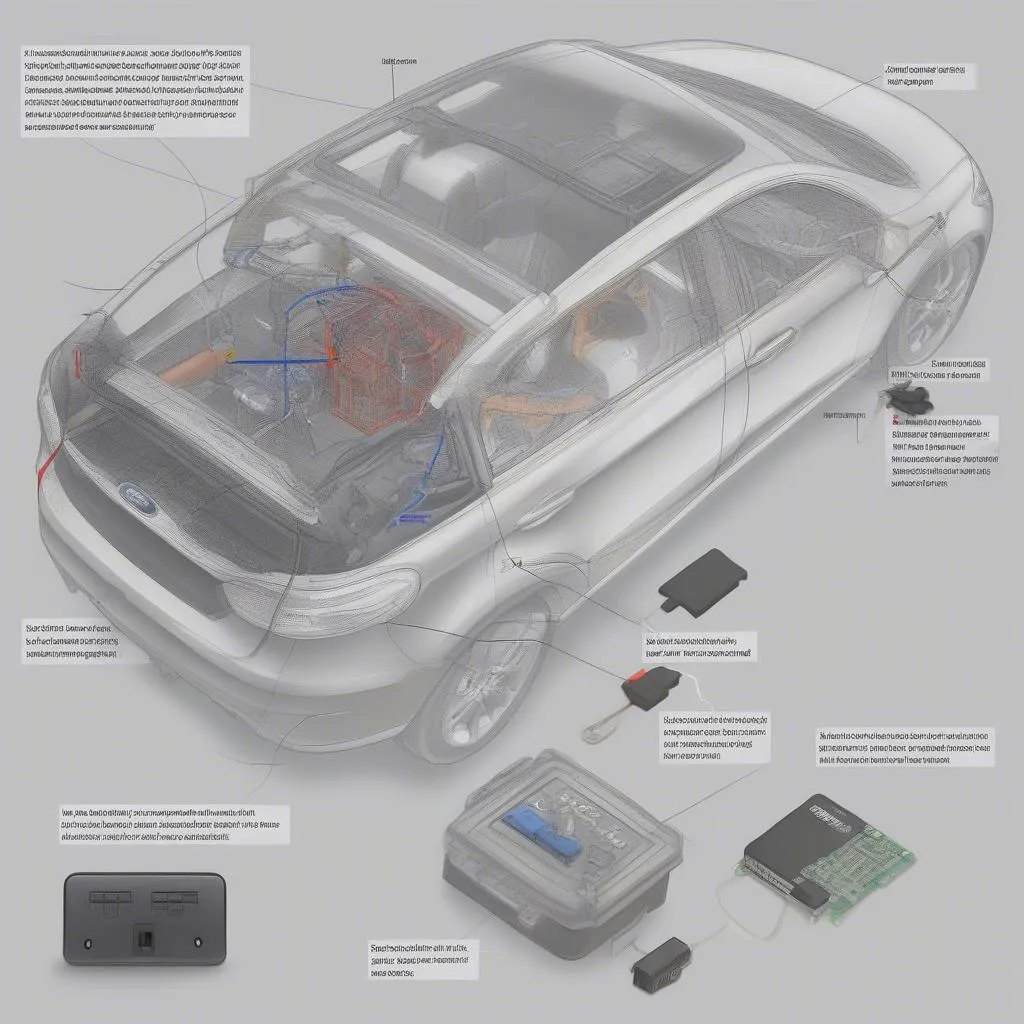A corroded car battery is a common issue that can lead to starting problems, reduced battery life, and even damage to surrounding components. If your car battery keeps getting corroded, it’s essential to address the root cause rather than just cleaning off the corrosion. This comprehensive guide will explore the various reasons why your car battery terminals corrode, offer practical solutions to fix the problem, and provide preventive measures to keep it from recurring.
One common reason your car battery keeps getting corroded is leaking battery acid. Over time, the seals around the battery terminals can deteriorate, allowing sulfuric acid to escape and react with the metal terminals, forming the characteristic white, powdery corrosion. Another culprit could be overcharging. If your car’s charging system malfunctions and overcharges the battery, it can generate excessive heat and accelerate the corrosion process. Sometimes a new battery but car not starting might indicate other issues besides corrosion.
Why is My Car Battery Corroding? Understanding the Culprits
Several factors contribute to car battery corrosion. Identifying the specific cause is crucial for effective treatment and prevention.
Battery Age and Condition
As batteries age, they become more susceptible to corrosion. The internal components degrade, and seals can become less effective, leading to acid leaks. Regularly inspecting your battery for signs of aging, such as cracks or bulges, is important.
Overcharging
A faulty voltage regulator can cause the alternator to overcharge the battery. This excessive voltage produces excess heat, speeding up the chemical reaction that leads to corrosion. If your battery good but car not starting, it could be a sign of overcharging or other electrical issues.
Environmental Factors
Extreme temperatures, both hot and cold, can stress the battery and contribute to corrosion. High humidity also accelerates the process. Storing your car in a garage or covered area can help mitigate these environmental effects.
Leaky Battery
A cracked or damaged battery case can allow battery acid to leak directly onto the terminals and surrounding components, causing rapid and severe corrosion. This requires immediate attention to prevent further damage. If you find your new battery drained overnight, a leaky battery could be the reason.
How to Clean Corroded Car Battery Terminals
Cleaning corroded battery terminals is a relatively simple process. Here’s a step-by-step guide:
- Disconnect the Battery: Always disconnect the negative terminal first, followed by the positive terminal.
- Prepare a Cleaning Solution: Mix baking soda and water to create a paste.
- Apply the Solution: Apply the paste to the corroded terminals and surrounding areas.
- Scrub the Terminals: Use a wire brush or battery terminal cleaner to scrub away the corrosion.
- Rinse and Dry: Rinse the terminals with clean water and thoroughly dry them.
- Reconnect the Battery: Reconnect the positive terminal first, followed by the negative terminal.
Preventing Car Battery Corrosion
Preventing corrosion is more effective than constantly cleaning it. Here are some preventative measures:
- Regular Inspections: Regularly inspect your battery for signs of leaks, cracks, or corrosion.
- Keep Terminals Clean: Periodically clean the battery terminals with a baking soda solution, even if they don’t appear heavily corroded.
- Apply Protective Coating: After cleaning, apply a battery terminal protector spray or felt washers to prevent future corrosion.
- Check the Charging System: Have your car’s charging system checked by a mechanic to ensure it’s functioning correctly and not overcharging the battery.
“Regular battery maintenance, including cleaning and inspection, can significantly extend the life of your battery and prevent costly repairs,” says John Miller, a seasoned automotive electrical systems specialist. He further adds, “Addressing corrosion promptly is essential to avoid damage to other electrical components.” Remember, if you’ve got a new battery and car keeps dying, there might be underlying issues that require professional diagnosis.
Conclusion
Dealing with a car battery that keeps getting corroded requires a proactive approach. By understanding the causes, implementing proper cleaning techniques, and adopting preventive measures, you can extend the life of your battery and avoid potential starting problems. Don’t let corrosion compromise your car’s reliability. Take charge of your car’s electrical health today and address car battery corrosion before it becomes a major issue. If you’re experiencing battery drain while driving, it’s crucial to identify and address the cause promptly.
FAQ
-
What causes white powder on car battery terminals? The white powder is lead sulfate, a byproduct of the chemical reaction between battery acid and the lead terminals.
-
Can corroded battery terminals prevent a car from starting? Yes, corrosion can disrupt the electrical connection, preventing the battery from delivering enough power to start the engine.
-
How often should I clean my car battery terminals? It’s recommended to clean them every few months or whenever you notice corrosion buildup.
-
What is the best way to clean car battery corrosion? A mixture of baking soda and water is an effective and safe cleaning solution.
-
Can I use Coca-Cola to clean car battery corrosion? While Coca-Cola can dissolve corrosion, it’s not recommended due to its sugar content, which can leave a sticky residue.
-
How can I protect my battery terminals from corrosion? Applying a battery terminal protector spray or felt washers after cleaning can help prevent future corrosion.
-
Should I replace my battery if it keeps corroding? If the corrosion is severe or caused by a leaky battery, replacement might be necessary.


